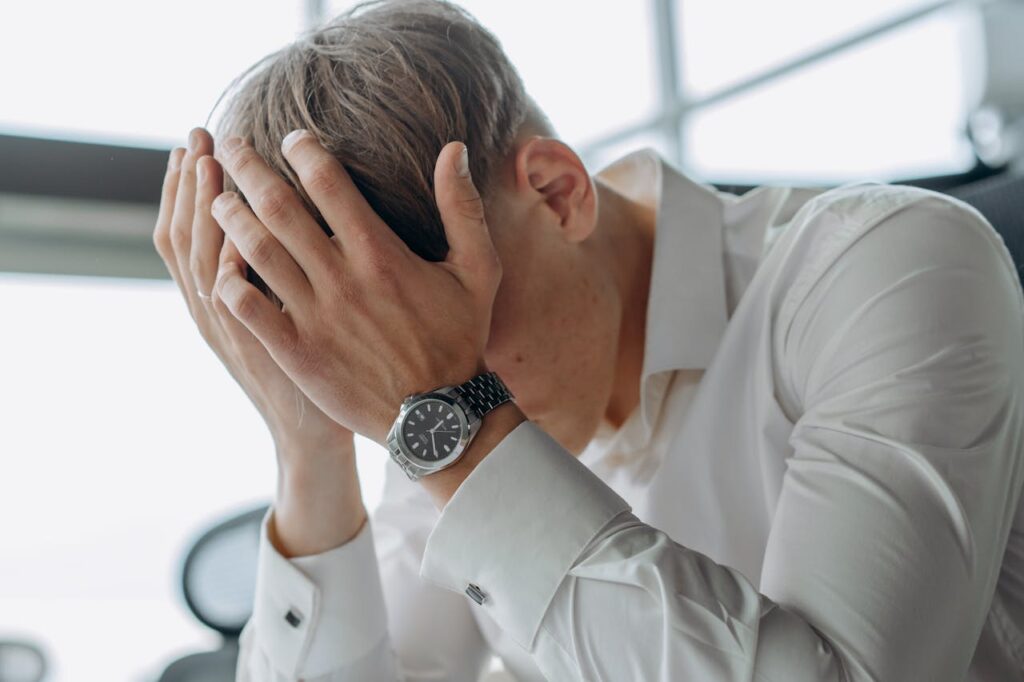Treatment for pornography ‘addiction’ is increasingly in demand. Compulsive use of harmful pornography can be destructive to your mental health, your relationships, and your sexual functioning. The Internet and smartphones have exposed an entire generation to violent, abusive pornography from an early age. Realising you have a problem with using pornography might lead you to ask “How can I recover from porn addiction”? Understanding your pornography habit – for example, whether it is an ‘addiction’ – and its impact – can help you regain control.
TW: this article references sexual abuse and religious trauma.
Pornography Changes Sexual Response and Can Impact Mental Health
Adult erotica isn’t necessarily always violent or exploitative or abusive. Pornography is simply material containing the explicit representation of sexual activity, intended to be used for sexual arousal. Assuming all pornography to be harmful is counter-productive and just creates sexual shame. Pornography has existed as long as human imagination, that’s around 70,000 years, as part of the brain’s prefrontal synthesis. For many, adult erotica enhances sexuality and sexual functioning when accessed and enjoyed with consent in non-harmful ways.
And despite what you might see on TikTok, problematic pornography use isn’t officially classified by science as a sexual disorder or addiction. However it can feel like an addiction due to the compulsive nature of entrenched habits. If you always associate sex or masturbation with pornography, your sexual response can start to depend on pornography to function. Relying on particular imagery for masturbation or sex but not having access to it can result in erectile dysfunction, trouble reaching orgasm, and even a psychological dependence on medications like Viagra or Cialis. Fortunately it is possible to recondition and recover your sexual response by changing habits, but it can take time and practice.

Developing an obsession with harmful imagery or violent acts depicted in pornography can affect your perception of reality. Violent acts start to appear ‘normal’. A reliance on particular erotica can corrode your sense of self and your self-worth and even your value system. Associating pornography use with using alcohol or drugs like methamphetamine (aka ‘ice’ or ‘crystal’ or ‘tina’) can contribute to the emergence of drug dependence for those who struggle to put boundaries around substance use.
As a therapist who specialises in pornography use problems, I work within a sex positive, sexuality-affirming framework. I help people reflect on the type of adult erotica they are using and how it is impacting their mental health and relationships. I also support people who decide they need to make changes.
Take the first step: book a counselling appointment for pornography ‘addiction’
Pornography Dependence and Relationship Breakdown
Compulsive porn use that feels like ‘porn addiction’ can have a devastating impact on your relationships. If you’re grappling with a porn habit, you might find it tough to be assertive in sexual situations, making you vulnerable to exploitation or assault. You might also struggle to respond to your partner’s needs, leading to dissatisfaction and disconnection for both of you.
The best shared sexual experiences happen when both partners are tuned into to each other’s, as well as their own, pleasure. If porn is leaving you engrossed in fantasies, it can interfere with your responsiveness to your partner. The discovery of secretive pornography habits can cause mistrust and communication problems. Some partners interpret it as ‘cheating’ (infidelity) and feel betrayed, further damaging trust and intimacy in a partnership.
Research is showing that accessibility to violent pornography is contributing to a culture of coercive control and sexual manipulation. Young people who grow up seeing degrading and harmful imagery are becoming desensitised to how destructive it can be to their relationships. The depiction of men behaving violently towards women in pornography reinforces toxic gender norms. This is particularly the case amongst younger men who are learning about relationships. Without parental safeguards in place, children are at risk of accessing explicit content that includes depictions of non-consensual behaviour. Addressing your pornography use might improve your mental health and also help protect others who are vulnerable to harm.

What Causes Pornography ‘Addiction’ or Dependence on Pornography?
In counselling for both sexuality concerns and recovery from religious trauma, I hear many stories about dependence on pornography. Firstly, if you experience sexual abuse it can alter your sense of boundaries. Abuse within a religious cult or family can impact your confidence or willingness to explore adult relationships. Depictions of non-consensual sexual activity can appear familiar to those with a history of abuse. Confining your sexual expression to a virtual world might feel safer, even if that virtual pornographic world is one of violence and harm. Using pornography can sometimes feel safer than real engagement with another person.
The Covid19 Pandemic might have caused you to relocate your sexual life online. And virtual sexual expression might have lead to social isolation, withdrawal from others, dating difficulties, and fear of sex. You might start thinking you are obsessed or fixated with porn. For many of my older gay male clients, the pandemic mirrored the era of AIDS when using adult erotica felt much safer to engaging sexually with men in real life.
I have worked with many sexually inexperienced adults. Bad experiences with dating apps like Tinder and Grindr can lead to dissatisfaction, pushing you further into a fantasy world of porn. Reliance on adult erotica can replace real-life interactions, perpetuating a cycle of compulsion and withdrawal. For those who consider themselves sexual virgins, fears about how to engage sexually can entrench pornography habits. Performance anxiety and Retroactive Jealousy can also have people seeking treatment for pornography habits.
There is nothing wrong with masturbation by oneself. It is a perfectly healthy and reasonable choice to make in preference to sexual relations with others. But masturbation patterns can also become adversely affected by pornography use. The most obvious example is where searching for adult erotica online leads to accessing harmful or illegal content. And, as previously mentioned, by confining your sexual expression to masturbation with pornography, you will be conditioning your sexual response in particular ways. A pornography use habit might make it difficult to transition back to sexual responsiveness with a partner. In any case, understanding how your pornography use emerged as a problem can help you deal with it more effectively.

Treatment for Pornography ‘Addiction’: How to Recover from Problematic Use of Pornography
Recovering from compulsive porn use is a journey that takes time and patience. Getting back to your preferred form of sexual pleasure might take months or years, but it’s entirely possible with intention, dedication and therapeutic support. Professional expertise can help you make the connections between your porn use and life experiences.
A key part of recovery is improving the relationship you have with yourself. Self-compassion, rather than self-criticism, is essential. Berating yourself for a relapse isn’t the way forward. Instead, learning self-compassion skills in therapy will help prevent relapse into unwanted habits. Recovery involves a number of stages including becoming aware of the problem, acknowledging it, and committing to change. Understanding the impact of a pornography use pattern on yourself and others is crucial. You might need support to make and maintain these changes, including finding more functional, healthier ways to meet your needs.
Problematic pornography use poses significant challenges, but it is possible to overcome. Relapses into previous habits can occur. You can see relapses as opportunities for learning and recommitment. Adjusting your strategies for sustained change and having a therapist to guide this process can significantly improve the likelihood of successful recovery. With the right support, self-compassion, and dedication, you can overcome your compulsive pornography habits, improve your mental health, and form healthier relationships. Treatment for pornography ‘addiction’ involves you taking the first step of reaching out for support. When we admit we are responsible for ourselves, we open ourselves to the possibility of change.
